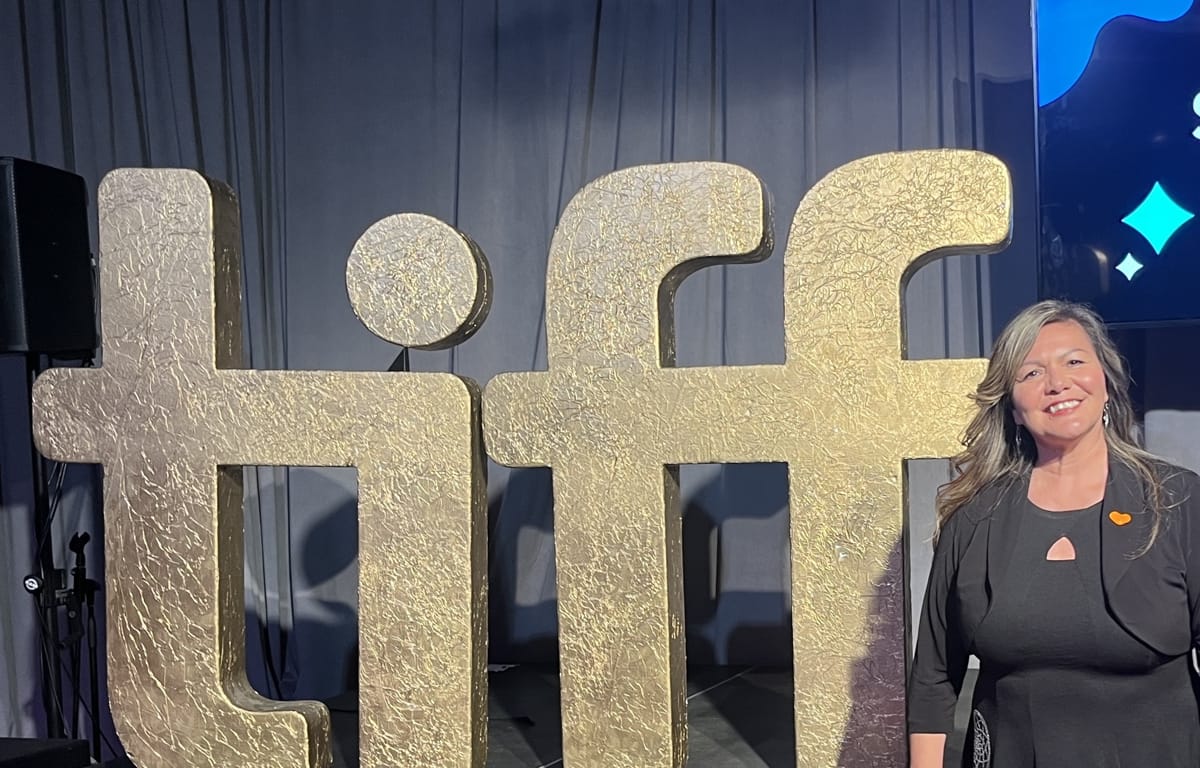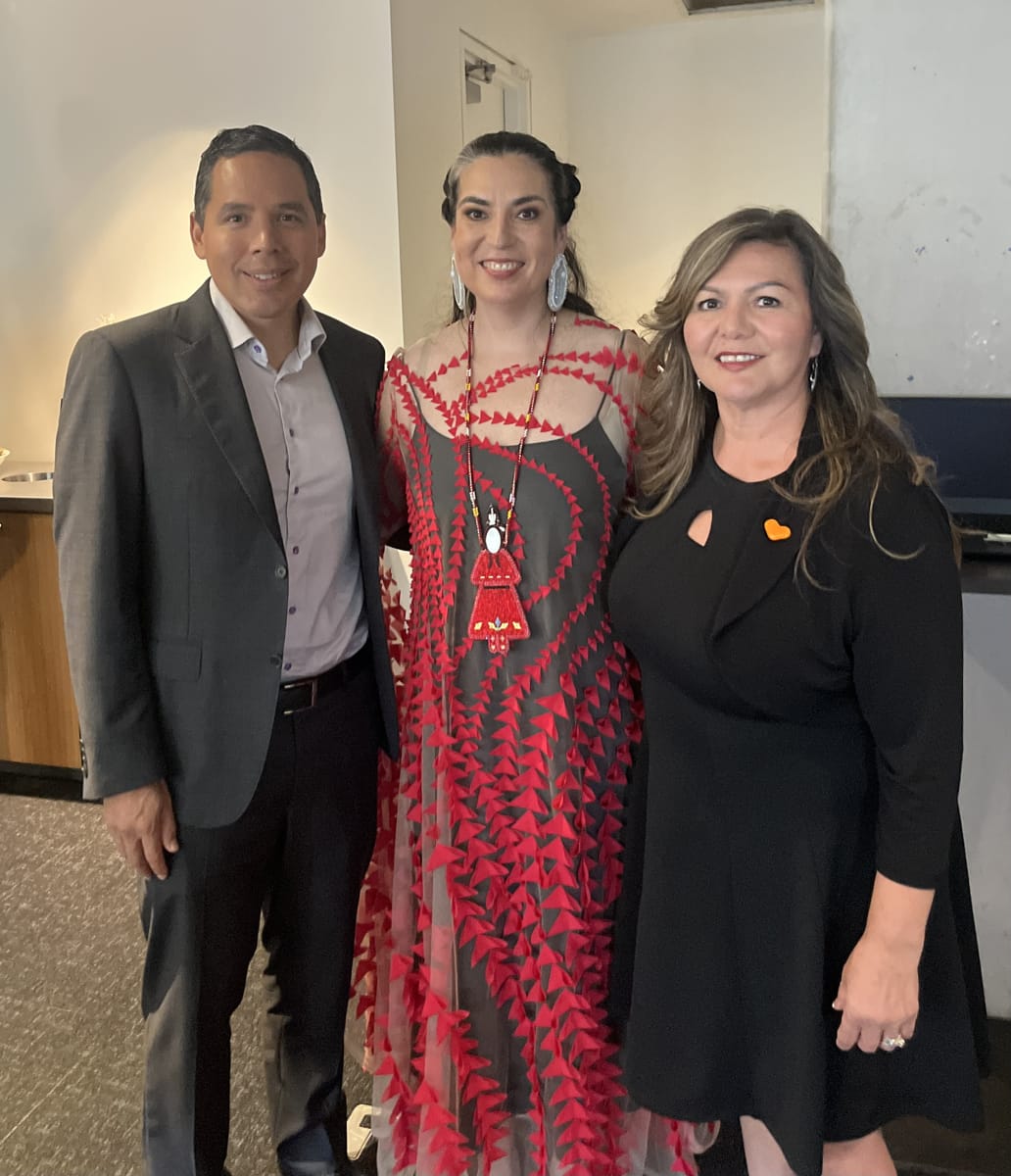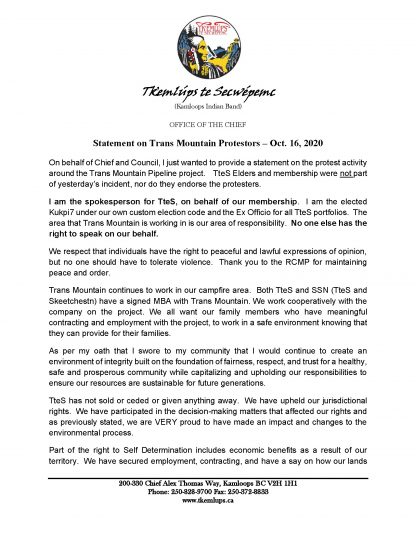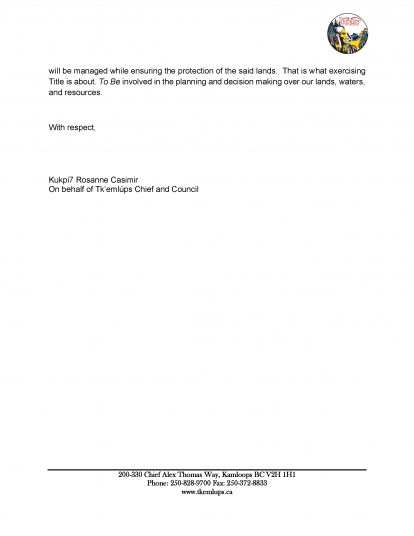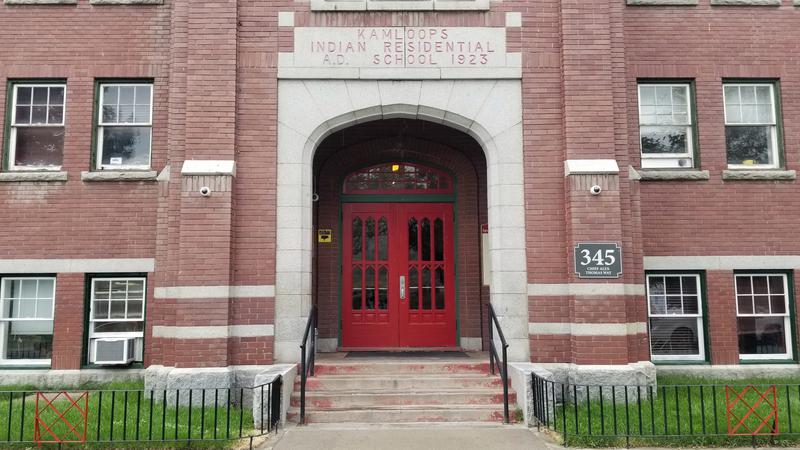Posted on: September 17, 2024
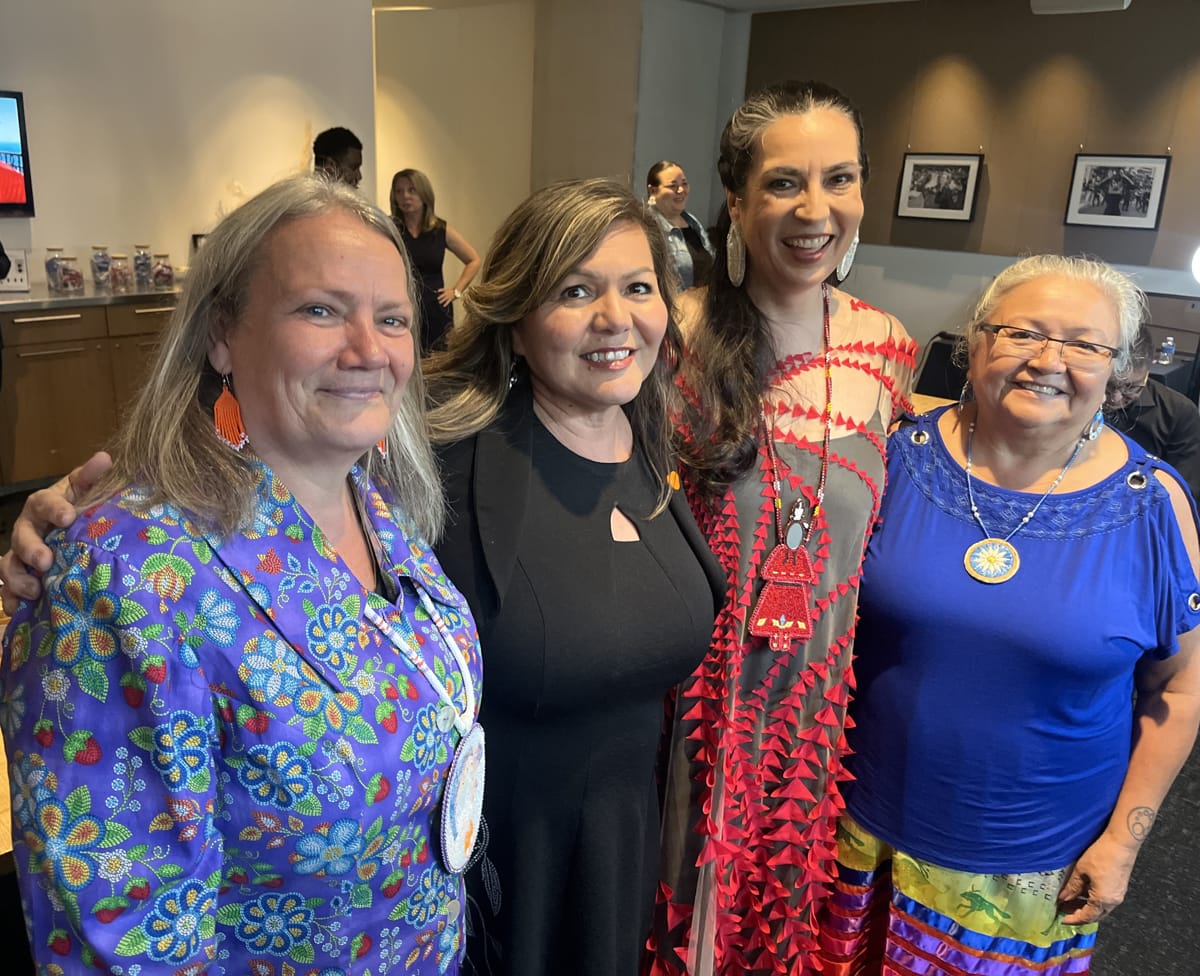
The Toronta International Film Festival (TIFF) highlights Canadian perspectives to the world. TIFF is also a platform for underrepresented voices and truth telling, a significant outlet for Indigenous voices and realities.

Kúkpi7 Rosanne Casimir and Le Estcwicwéy̓ Manager Jeanette Jules were delighted to accept Tanya Talaga’s invitation to the TIFF screening of her documentary series, “The Knowing” which also the same title for her newly published book. Tanya made it clear that her journey began with covering the breaking news about Le Estcwicwéy̓ (the Missing Children of Kamloops Indian Residential School). Tanya brings to light significant parts of Canadian history, her lived experience from covering what took place at Tk̓emlúps, while the primary focus is about all that was involved in locating her great great grandmother.
Tanya Talaga has offered to host a screening of “The Knowing” in community and we are finalizing the details. We look forward to sharing more about it soon!
Posted on: August 8, 2024
Take a moment to have a look at one of our sacred areas within our immediate community. The Language & Culture department have been actively taking back our ancestral gathering and ceremonial area Tḱemlúlpe (Indian Point).
We strongly urge our membership to make a presence known down there once again so outsiders are detoured from polluting and overtaking our lands.
Please refrain from drugs and alcohol in this area and enter at your own risk, going off of trails could heighten the possibility of poison ivy exposure during the spring and summer months.
READ UPDATE [PDF] ►
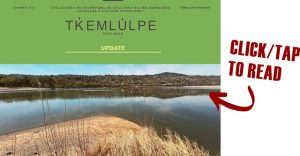
Posted on: October 16, 2020
Posted on: July 22, 2020
For more information, please use the contact number provided in the poster below.

Posted on: August 26, 2019
Posted on: August 13, 2019
Posted on: July 11, 2019
Coyote Release
Weytk-p
The Natural Resource department has been working hard to reduce the coyote population throughout the community, and so the 4th coyote in the last week was taken and relocated out of the subdivision. Please take caution when you see these animals and give them lots of room. The Natural Resource department will trapping this area throughout the summer. Please do not approach any box traps when you are in this area.
This area will always have wildlife within it as it is a very large piece of riparian habitat.
Kukwstsétsemc
Barry
Posted on: September 28, 2017
Posted on: July 12, 2017
Posted on: April 21, 2016


